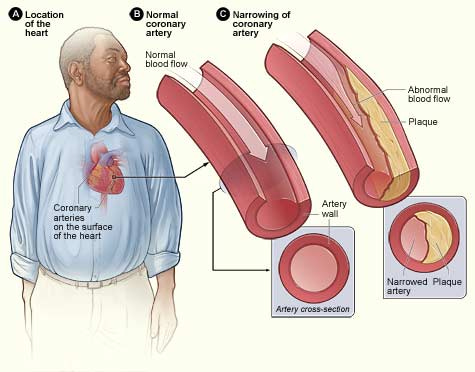A doctors' guide to Saffron: Part 2
We discover the fascinating properties of the world's most expensive spice. PLUS we have a new YouTube video out on the memory-enhancing properties of lions mane mushroom!
This week I have delved back into the magical spice that is saffron to complete part 2 of my blog.
Now if you haven’t read part 1 of my saffron blog then I’d advise you start here before reading this blog. It contains the history and biochemistry of this wonderful spice, as well as my analysis of its anti-depressive properties.
If you have read any of my other blogs then you may have worked out that I’m fascinated by the brain.
I’ve written about the science behind lions mane mushroom and bacopa monnieri, two promising nutraceuticals shown to improve cognition.
Therefore I was naturally intrigued to discover that studies had shown saffron to exhibit neuro-protective effects.
What does this mean?
NEURO-PROTECTIVE
Saffron has the potential to help against conditions that affect the brain. In particular Alzheimer’s disease (AD).
I’d recommend you start by watching this educational video by TED on AD, it’s a very good explanation on the disease.
What is Alzheimer's disease video?
Currently there is no treatment for AD.
What exists is symptom management which put bluntly, does very little to reduce disease progression. Further, these very medications prescribed to try to improve symptoms can in fact bring a host of side-effects.
This is where saffron comes in.
A 2014 compared Saffron to memantine, a common AD medication. The study reported similar efficacy and test scores between participants of the memantine group and saffron group.
This was preceded by 2 studies, one in 2010 and one in 2009.
The 2009 study compared the efficacy of saffron to donepezil. Donepezil is another commonly used drug in AD which inhibits acetylcholinesterase thus resulting in increased levels of acetylcholine. This is very similar to how memantine works.
At the end of the study, the saffron group reported similar efficacy to donepezil via AD assessment scale and clinical dementia rating scale.
The 2010 study used 46 patients with mild-moderate AD. The subjects of this study were split into 2 groups, with the control group given a placebo whilst the other given saffron. The latter group exhibited significantly better outcomes via cognitive testing that the placebo group with no differences in adverse events.
CARDIO-PROTECTIVE
During my research I came across several papers that discussed the cardio-protective properties of saffron.
(FYI ‘cardio-’ relates to the heart)
I know full well the increasing burden of cardiovascular disease (CVD) on the NHS.
According to the British Heart Foundation, cardiovascular disease contributed to the deaths of 607,172 people in the UK in 2017. At the time of writing this, I couldn’t find any detailed reports more recent than 2017 so the number of deaths may be higher.
607,172 deaths in one year.
1663 deaths every day.
69 deaths every hour.
To put that into context, as of March 2021 the total number of deaths from COVID-19 in the UK stands at 126,000.
This is a staggering number of lost lives, many of which could have been prevented with simple, lifestyle changes.
Estimates by the European Cardiovascular Disease Statistics 2017 report put the economic cost to the UK economy at £22bn in 2015. This included the direct costs of treating CVD and the indirect costs of lost productivity to the economy.
There’s actually so many fascinating effects from saffron extracts on the heart. I’ve read studies that report an anti-platelet effect, similar to the commonly prescribed drug ‘aspirin’ to blood-pressure lowering through increase of nitrous oxide and blocking of calcium-channels.
A 2014 study on rats questioned whether crocetin could repair the damage to a heart from lack of blood flow, mimicking a heart-attack. Heart damage was induced in the rats by blocking one of the arteries temporarily. The rats which received the saffron extract showed reduced: heart damage, oxidative stress (reduced malondialdehyde, increased dismutase), inflammatory markers (reduced TNF-a, increased IL-10) and elevated nitrous oxide.
SUMMARY
I think that when you look at all the potential medicinal properties of saffron, it may be one of the most underrated spices available. Through my 2-part journey into this amazing spice I’ve discovered research on its: anti-anxiety, anti-depressant, neuro and cardio-protective effects.
For completedness I think there’s need to be more research on the cardio-protective claims as the studies I found were either in-vitro or in-vivo animal studies. So more human trials would be the way forward to determine confidently its cardio-protective effects.
Another issue I can see with saffron is its price.
Let me remind you. It is the world’s most expensive spice.
So understandably it isn’t going to be cheap to obtain the quantity of good-quality saffron required for its medicinal properties.
However it is a lovely, fragrant spice and I’m certainly going to try to incorporate more into my dishes.
FOR ALL THE REFERENCES VISIT THE FULL BLOG ON THE WEBSITE HERE
*NEW YOUTUBE VIDEO 📹*
This week I’ve published my video summary on lions mane mushroom.
I talk about how it helped me to pass my medical school finals. It really helps get the education out there by liking the video, subscribing to the channel and sharing the video.
Article of the week
I read this fascinating article which spoke about a study that suggested extreme exercise could in fact be damaging to the body.
Interesting article that’s worth the read.
As always thanks for your subscription to our weekly newsletter. We truly hope that every week you learn something new. Our mission is to educate you about the wonderful medicinal properties of herbs, spices and plants from around the world.
Small changes. Healthy habits. Happy lives.
Ciao,
Dr Haris Mumtaz








